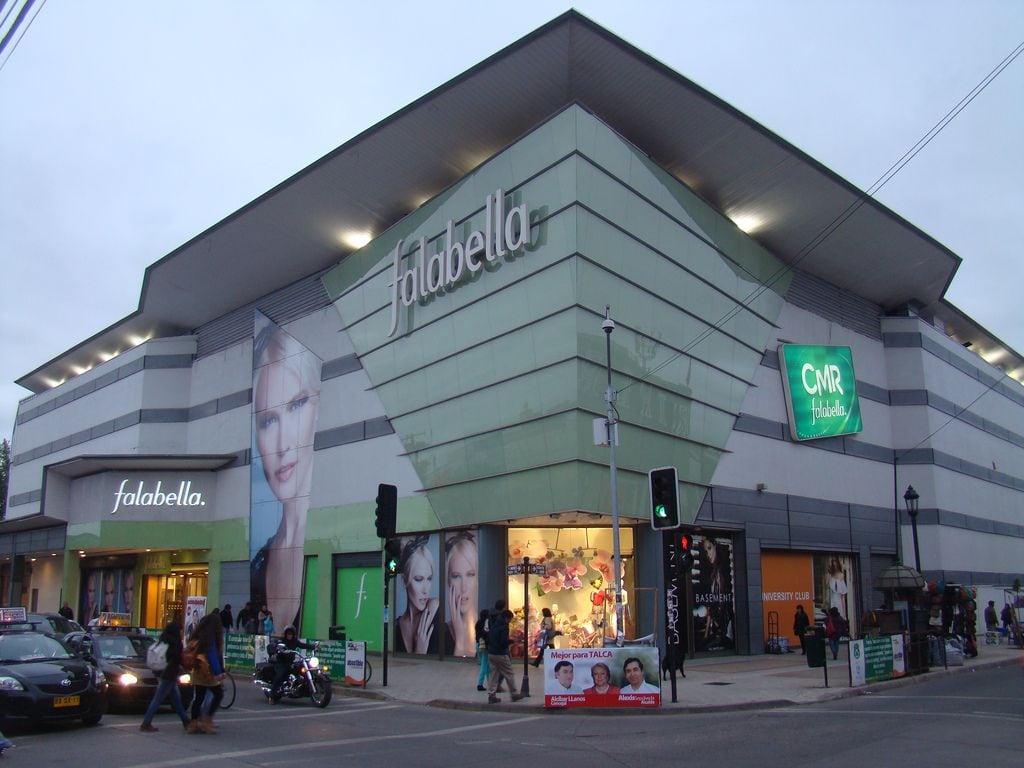
Falabella SA, Chile’s second-largest retail group by sales, expects to close several more “major” asset sales this year as part of its plan to raise $850 million to $1 billion and help improve its credit metrics, said chief executive officer Alejandro González.
The Santiago-based retailer announced this month that it reached an agreement to sell it its stake in mall owner Falabella Peru to Plaza SA, a separate company controlled by Falabella. Plaza, more commonly known as Mallplaza, agreed to raise as much as $300 million via the sale of new shares to buy the stake.
“The Plaza deal is the first concrete sale, and there have been some minor asset sales but we are working with banks and we should complete several major transactions this year,” González told reporters in Santiago after the company’s annual shareholder meeting. He didn’t provide details on what assets were for sale.
The asset sales combined with cost cuts and a recovery in revenue and profitability indicators should allow Falabella to improve its credit metrics.
“The investment grade will be a result of returning to our historical results and that is what we are working on,” González said.
Earlier in the annual shareholder meeting, chairman Enrique Ostale said in prepared remarks that the company is working to return to investment grade as soon as possible, and that the company has comfortable solvency and cash positions.
González said credit rating companies have told the company to aim for a ratio of net debt to Ebitda of about 4 times.
“We’re confident that we will be able to close the year close to that,” he said, adding that the ratio is currently near 6.5 times after peaking at 8.6.
The retailer operates department stores, home-improvement shops and supermarkets in seven Latin American countries. In recent years, heavy investments to expand its online operations and compete with giants such as Amazon and MercadoLibre Inc. failed to deliver positive results. This, added with a general economic slowdown in the region, hurt its balance sheet and led to a loss last year of its investment grade rating.
Fallabella’s bonds tumbled in November after both Fitch Ratings and S&P Global Ratings downgraded the retailer’s credit score to junk, citing a deterioration in Falabella’s leverage metrics and risks in its debt reduction plan.
Then-CEO Gaston Bottazzinni — who spearheaded the growth into e-commerce, through deals such as the acquisition of Mexican marketplace Linio in 2018 — resigned and was replaced in January by González.
Falabella might be regaining investors’ trust on its prospects. The retailer’s shares have gained 40 percent since the end of October, and its fourth-quarter earnings beat estimates. In the first quarter of the year, Falabella’s dollar bonds due in 2032 returned a positive 6.9 percent, one of the best among all Chilean corporate dollar bond issuers, according to data compiled by Bloomberg.
Falabella is scheduled to disclose first-quarter results in May.
“2023 was a complicated year, with economic and political challenges in our three main markets,” Ostale told reporters. “That made us work harder to correct what needed to be corrected.”
By Emma Sanchez and Eduardo Thomson
Learn more:
Fashion’s Fragile Recovery in Latin America
The apparel and footwear market in Colombia rebounded faster than in Brazil or Mexico, but Chile and Peru may not recover to pre-pandemic sales levels for years. Where are the region’s next growth opportunities?



